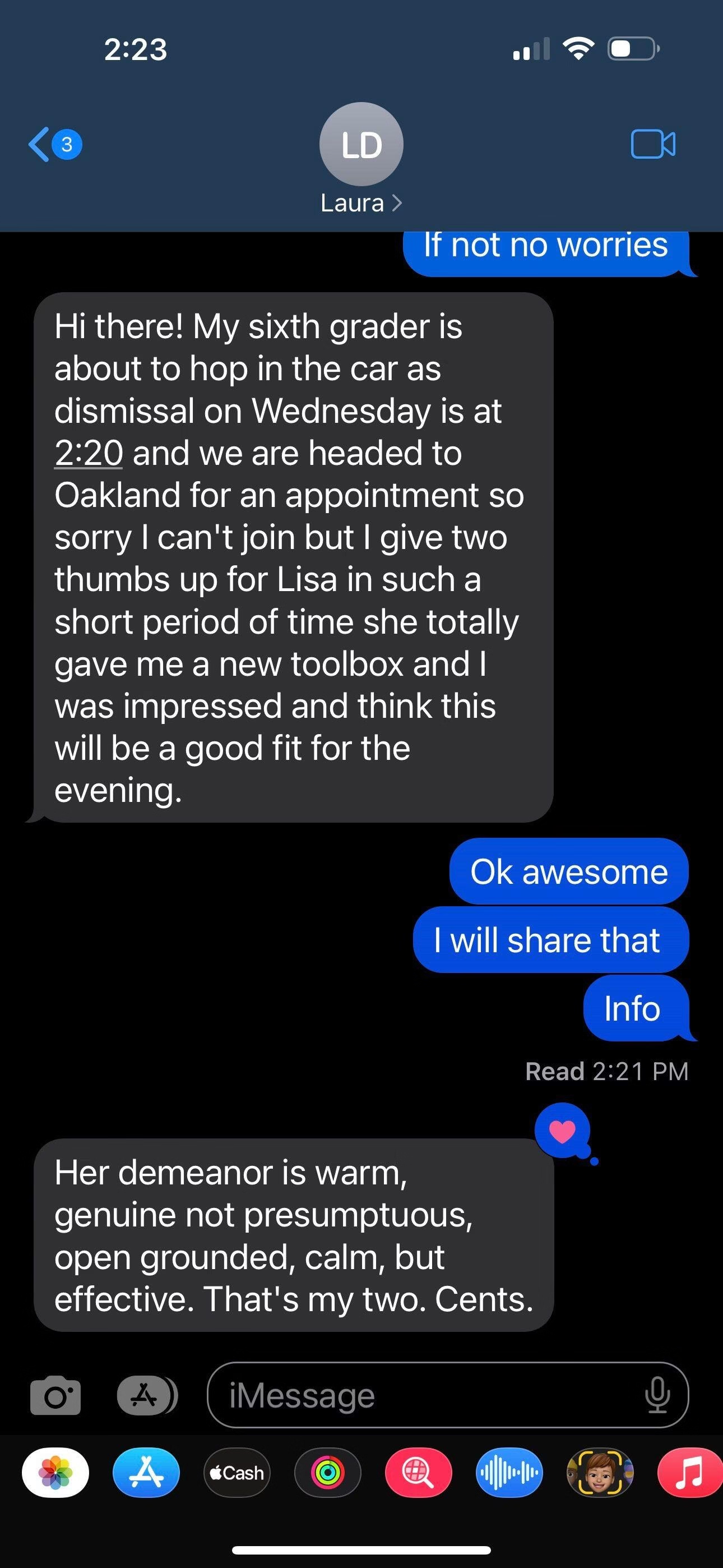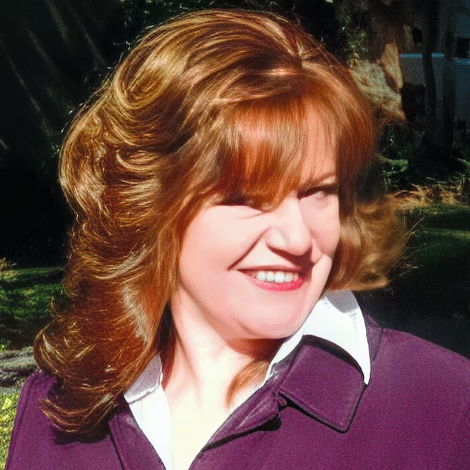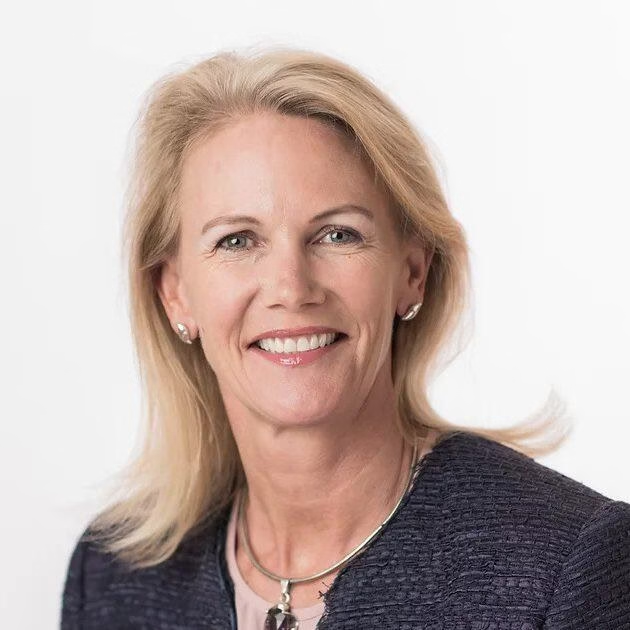Stop
Family
Conflict
Workshop
Practical Strategies for Preventing Conflicts with Middle and High Schoolers

Malini Pant
PTSA Event Coordinator
Monta Vista High School
“This is such a powerful workshop. It equips parents with the tools they need to think differently about conflicts with their kids. I want our school to offer it every year.”
Watch this video to get a flavor of what it’s like
Watch this video to get a
flavor of what it’s like
Middle and high school is a really important time for families.
This small window of opportunity can have huge impacts on how parents and children relate to each other now and into the future.
This is when kids are coming into their own and figuring out their values, interests, and identity, independent of their parents.
Parents are now moving away from their role as manager and auditioning for their role as (unpaid) consultant.
The only way to get the job? Build trust when there’s a conflict. Easier said than done.
Middle and high school is when kids start sneaking around and hiding things from their parents.
Why? Because they’re scared that their parents aren’t going to support their choices. So, rather than find out, they’re going to experiment without your knowledge. (Remind you of someone?)
The question is: How are parents going to handle that when it happens?
We often think there are only two choices —
The my-way-or-the-highway approach or let them walk all over you.
The problem is, both of these options tend to lead to more sneaking around.
The good news is, there’s a better, rarely used, third option.
One that will create an environment of trust and connection so that parents can have peace of mind that their children are making choices that truly serve them and consider others, including them.
So, how do we create that space?
In this hands-on workshop we’ll cover…
- Why compromise doesn’t work in the long run and the mindset shift that makes conflict prevention and repair possible
- A streamlined four step process for preventing and resolving conflicts that results in win-win solutions for everyone
- Inspiring and educational case studies of families using this process to transform long standing conflicts
- How to avoid the common pitfalls that escalate conflict despite parents’ best intentions
- How to make requests—not demands—while remaining confident that parents won’t give up on what’s important to them
This workshop is perfect for parents if…
- They’ve tried a million things but can’t stop the same fights about issues like chores, screentime, and how their kids treat each other from happening.
- They’re sick of being a pushover or police officer (sometimes both on the same day).
- They don’t want to fight with their partner about how to handle conflict with their kids
- They’re scared that their inability to handle conflicts is corroding their kids’ trust in them and, as a result, their kids aren’t telling them what’s really going on for them
- They fear that these ongoing conflicts are hurting their kids’ relationships with their siblings now and in the future.

This workshop is perfect for parents if…
- They’ve tried a million things but can’t stop the same fights about issues like chores, screentime, and how their kids treat each other from happening.
- They’re sick of being a pushover or police officer (sometimes both on the same day).
- They don’t want to fight with their partner about how to handle conflict with their kids
- They’re scared that their inability to handle conflicts is corroding their kids’ trust in them and, as a result, their kids aren’t telling them what’s really going on for them
- They fear that these ongoing conflicts are hurting their kids’ relationships with their siblings now and in the future.
This workshop is a significant step on a journey to…
- Everyone in the family (finally) getting along.
- Building real trust and open communication with each other.
- Peace of mind that kids will ask their parents for help when they need it and won’t sneak around.
- Confidence that if a fight does happen, it’s not going to ruin everyone’s day or dinner and everyone will learn something from it.
- Siblings handling their conflicts on their own in a healthy, productive way.

Margaret Lavin
Principal, Price Middle School, San Jose
“As a Principal, I have many obligations to attend events in the evening. One that was really powerful was the Stop Family Conflict Workshop. Those parents got so much out of it. I got so much out of it.”

Dan Ciruli
Father of 3, Oakland, CA
“Lisa has a fantastic ability to combine humor and meaningful insight that leads an audience on a journey of discovery through shared experiences.”

Rita Williams
Mother of Clyde, San Francisco, CA
“Parents leave Lisa’s talks feeling empowered. Lisa offers practical ways for parents to bring out the best in their children and themselves. She’s gifted at using the power of storytelling to open the hearts and minds of her audience to possibilities they hadn’t considered.”

Amy Cheney
Former Oakland Unified School District Librarian
“The practical strategies Lisa shares in her workshop have been extremely helpful to me in navigating my relationship with my Godchildren. After a helpful and restorative session with my Godson, who is 14, he asked if he could have her number so he could get support from her again. (A 14 year old!!!)”
About Your Facilitator

Hi. I’m Lisa.
I’ve spent the last two decades learning, practicing, and teaching hundreds of parents how to prevent family conflicts. I started doing this work because I decided that I wouldn’t have kids until I had tools to do things differently than my (well-intentioned and loving) parents did. I have two kids who are now 15 and 18.
Unlike me, my kids actually enjoyed middle and high school.
And I like to believe that a big part of that was because of the parenting choices my husband and I made. I’m thrilled to share our experiences and what we learned from them with you.
Parents usually feel judged
Parents usually feel judged
by their kids, their partners, their in-laws, other parents, and (the harshest critics of all) themselves. I see what every family member does through a judgment-free lens, which results in robust, compassionate conflict transformation.
I majored in Chinese in college, produced a podcast at a food truck park, and perform monologues like Date Night at Pet Emergency and the Mommy Meltdown Show. I also love square dancing and tandem pedal kayaks.
You’ve probably noticed that I don’t have any letters after my name. That’s because the skills you need to prevent conflicts and repair ruptures don’t require a degree in mental health. They’re accessible to everyone. My clients and I are living proof of that.
A Few More Details
We encourage parents to bring kids as young as 10 — provided they genuinely want to come. Parents can tell them this is a chance to find out how they can get more of what they want, more of the time, in a way that works for everybody.